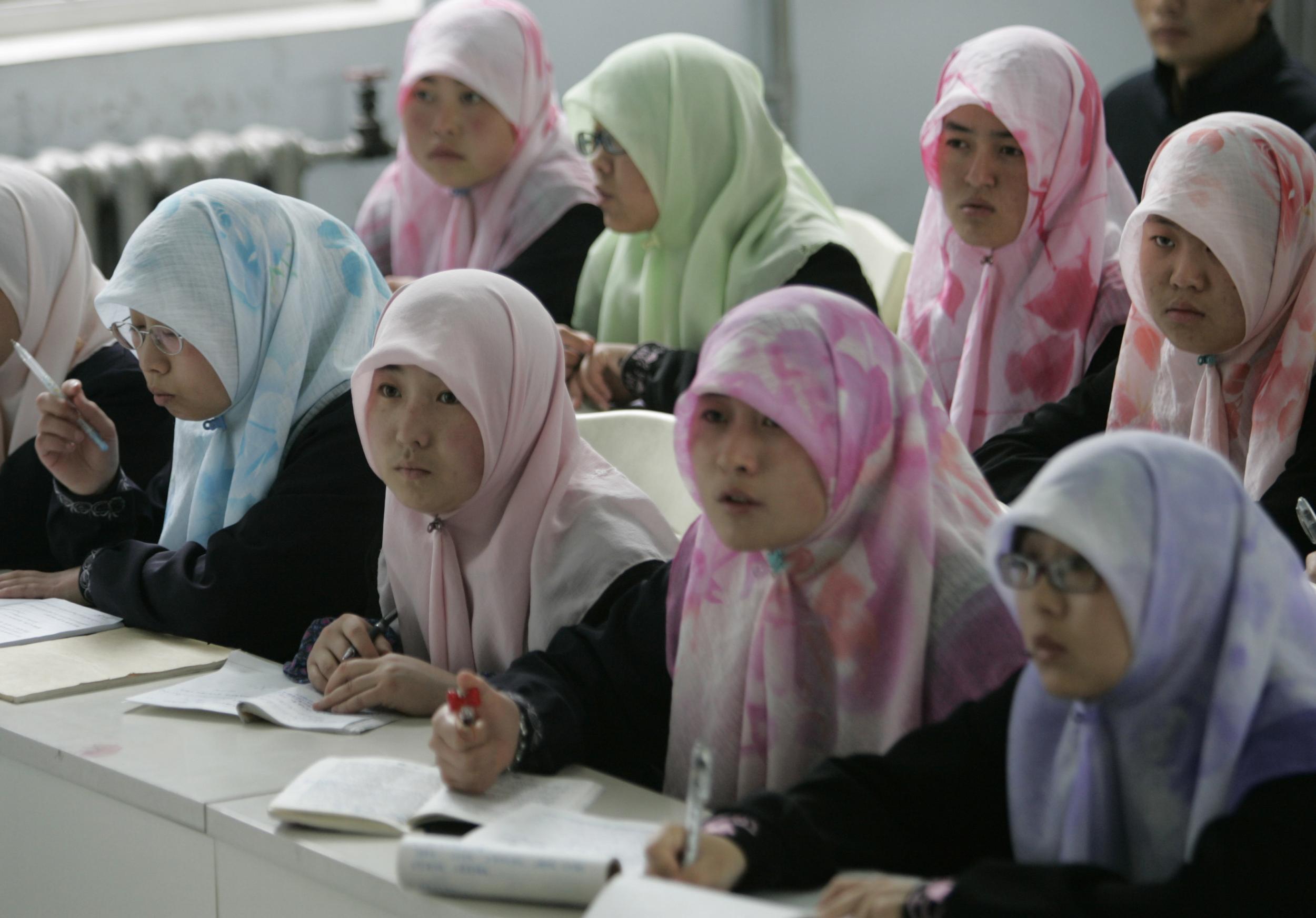China bans children in predominantly Muslim county from attending religious events during winter holidays
School pupils prohibited from entering religious buildings or reading scriptures in classes during winter break

Your support helps us to tell the story
From reproductive rights to climate change to Big Tech, The Independent is on the ground when the story is developing. Whether it's investigating the financials of Elon Musk's pro-Trump PAC or producing our latest documentary, 'The A Word', which shines a light on the American women fighting for reproductive rights, we know how important it is to parse out the facts from the messaging.
At such a critical moment in US history, we need reporters on the ground. Your donation allows us to keep sending journalists to speak to both sides of the story.
The Independent is trusted by Americans across the entire political spectrum. And unlike many other quality news outlets, we choose not to lock Americans out of our reporting and analysis with paywalls. We believe quality journalism should be available to everyone, paid for by those who can afford it.
Your support makes all the difference.A predominantly Muslim county in western China has banned children from attending religious events during the winter holidays, as authorities step up control of religious education.
School pupils in Linxia county in Gansu province, home to many members of the Muslim Hui ethnic minority, are prohibited from entering religious buildings over their break, the district education bureau said in a notice posted online.
Students must not read scriptures in classes or religious buildings, said the notice, which also ordered pupils and teachers to work to strengthen political ideology and propaganda.
A picture of the notice was shared online by Xi Wuyi, a Marxist scholar at the state-backed Chinese Academy of Social Sciences and an outspoken critic of rising Islamic influence in China. In a post on the social media platform Weibo, she welcomed the apparent move by authorities.
A man who answered the telephone at the Linxia education bureau hung up when asked by Reuters to verify authenticity of the notice, while a woman at the district education bureau declined to comment.
New regulations on religious affairs, announced by China in October last year and due to take effect in February, aim to increase oversight of religious education and provide for greater regulation of religious activities.
Last summer, a Sunday school ban was introduced in the south-eastern city of Wenzhou, sometimes known as “China’s Jerusalem” due to its large Christian population. But Christian parents found ways to teach their children about their religion regardless.
Chinese law officially grants religious freedom for all but regulations on education and protection of minors also say religion cannot be used to hinder state education or to “coerce” children to believe.
Authorities in troubled parts of China, such as the far western region of Xinjiang, home to the Turkic-speaking Uighur Muslim minority, ban children from attending religious events.
But religious communities elsewhere rarely face blanket restrictions.
Fear of Muslims influence has grown in China in recent years, sparked in part by violence in Xinjiang.
The Chinese-speaking Hui, who are culturally more similar to the Han Chinese majority than to Uighurs, have also come under scrutiny from some intellectuals who fear creeping Islamic influence on society.
In 2016, the government of Gansu banned religion in nurseries after a video of a young girl reciting the Quran was posted online.
The province is home to around 1.6 million Muslims, the third largest Islamic population among China’s regions.
Chinese authorities are wary of the influence of religion and the threat it could pose to the officially atheist Community Party’s rigid political and social control.
Reuters contributed to this report
Subscribe to Independent Premium to bookmark this article
Want to bookmark your favourite articles and stories to read or reference later? Start your Independent Premium subscription today.
Join our commenting forum
Join thought-provoking conversations, follow other Independent readers and see their replies
Comments